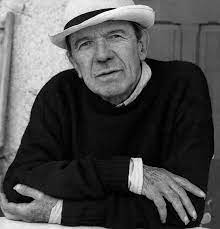Deleuze, Gilles

Bio: (1925-1995) French philosopher. Gilles Deleuze taught philosophy at the University of Lyon and the University of Paris. He criticized essentialism and rationalism in philosophy and significantly contributed to the development of poststructuralism and postmodernism. He is best known for two books, Anti-Oedipus: (1977, in French 1972) and A Thousand Plateaus (1987, in French 1980), which he co-wrote with Felix Guattari, and which share a common subtitle - Capitalism and Schizophrenia. In these two books, the authors reject the idea of the unconscious as a "theater", a place of implanted but repressed desires, as Sigmund Freud saw it. For them, the unconscious is a "factory" that produces desires. The authors thus reject what they call "Freudian Marxism" and claim that the unconscious is essentially connected with socio-geographical, historical, and collective factors.
Main works
Empirisme et subjectivité (1953);
Nietzsche et la philosophie (1962);
La philosophie critique de Kant (1963);
Proust et les signes (1964);
Le Bergsonisme (1966);
Présentation de Sacher-Masoch (1967);
Différence et répétition (1968);
L'Anti-Œdipe: Capitalisme et schizophrénie (1972);
Mille Plateaux: Capitalisme et schizophrénie 2 (1980);
Foucault (1986);
Spinoza – Philosophie pratique (1981);
Pourparlers 1972–1990 (1990);
Qu'est-ce que la philosophie? (1991).
Main works translated into English:
Proust and Signs (1973, in French 1964);
Anti-Oedipus (1977, in French 1968);
Nietzsche and Philosophy (1983, in French 1962);
Kant's Critical Philosophy (1983, in French 1963);
A Thousand Plateaus (1987);
Foucault (1988, in French 1986);
Bergsonism (1988, in French 1966);
Spinoza: Practical Philosophy (1988, in French 1981);
Masochism: Coldness and Cruelty (1989, in French 1967);
What is Philosophy? (1994, in French 1991);
Difference and Repetition (1995, In French 1968);
Negotiations 1972-1990 (1997, in French 1990);
Empiricism and Subjectivity (2001, in French 1953);
Essays Critical and Clinical (1997);
Letters and Other Texts (2020).

